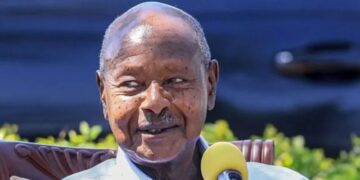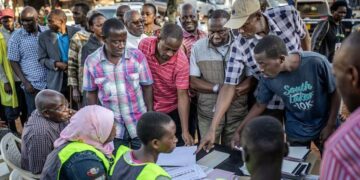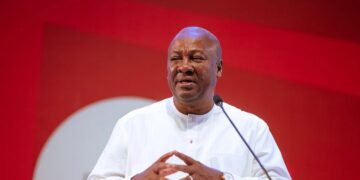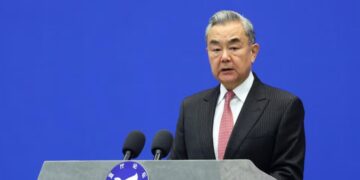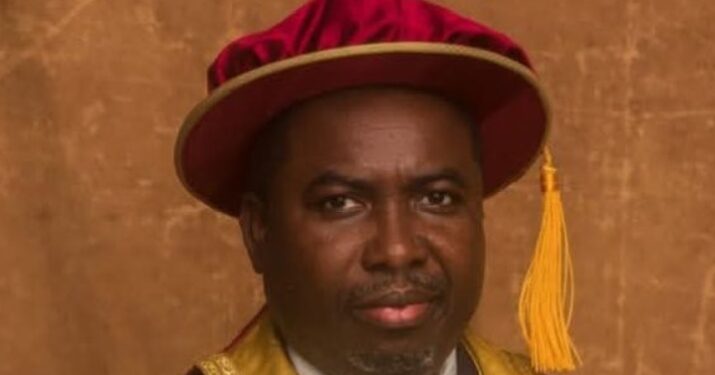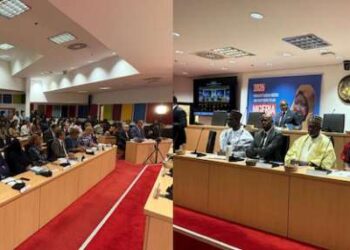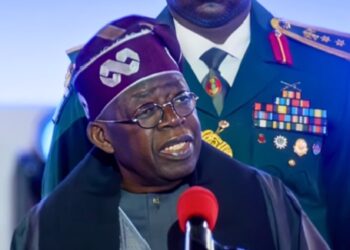By Enyichukwu Enemanna
The Nigerian upper legislative chamber on Thursday cleared a Professor of Law, Joash Amupitan as the new Chairman of the West African nation’s electoral commission, succeeding Yakubu Mahmood who recently bowed out of office following the expiration of his tenure of office.
His confirmation as the chairman of the Independent National Electoral Commission (INEC) came after a televised screening exercise that lasted for over two hours.
The 58-year-old senior lecturer who was nominated by President Bola Tinubu had last week been endorsed by the National Council of State, a body comprising former Presidents and Heads of State and governors.
He hails from Kogi State, North Central Nigeria. Amupitan becomes the sixth substantive Chairman of INEC.
The body has come under public scrutiny following the 2023 presidential election that produced Tinubu as the President. There has been a divided opinion on the transparency of the process due to failure of the commission under Mahmood to transmit election results from polling units to central server.
It cited “glitches” for the failure despite repeated promises before the polls. He has been challenged to initiate reforms that will strengthen public trust in the electoral system as the country gears for general elections in 2027.
During the screening, Amupitan announced plans to conduct a comprehensive audit of the commission, with a particular focus on logistics used during the 2023 general elections. This he said would help identify the challenges faced by the electoral body and develop practical solutions in collaboration with relevant stakeholders.
Among the far-reaching reforms he plans is to establish an internal ethics committee, the introduction of a whistleblower policy, strict enforcement of accountability, and the deployment of technology — including drones — to strengthen election logistics and security.
“I think that trust is a major concern. We will work out an internal mechanism to try the behaviour of humans,” he said.
“I’m taking this position on trust, and my people must also appreciate that they hold their positions on trust. We will set up an ethical committee to review what has happened in the past because complaints have been made, yet no action has been taken. We will pursue every complaint and follow through,” he stated.
Amupitan also disclosed plans to work with the National Assembly on the establishment of an Electoral Offences Commission to ensure proper investigation and prosecution of electoral crimes.
He noted that INEC currently lacks the institutional capacity for investigation and prosecution of electoral offences, and plans to introduce a whistleblowing policy.
“We will collaborate with the National Assembly because legislative intervention is necessary for the creation of an electoral offences commission that can investigate cases, even through forensic means. We will also introduce a whistleblowing policy to expose such practices,” he said.
On election security, the INEC boss pledged to adopt innovative measures to ensure that no eligible voter is disenfranchised, even in hard-to-reach areas.
“Security is a major challenge. We will work with the security committee to strengthen those areas. We will invest in logistics to ensure we reach every part of Nigeria — even if we need to use drones. No voter will be left behind; that will be our policy,” he stated.
Addressing the contentious issue of real-time transmission of results, Amupitan said legislative clarification was needed to resolve existing ambiguities in the Electoral Act.
“On the issue of real-time transmission, the Electoral Act has not been concluded. I will make my input where necessary to ensure the matter is properly addressed,” he assured.
The INEC chairman also pledged to streamline election timelines and procedures to enhance transparency and credibility.














